White: We're still trying to win the Giro d'Italia
Mitchelton-Scott management puts on a brave face as Chaves' GC hopes evaporate
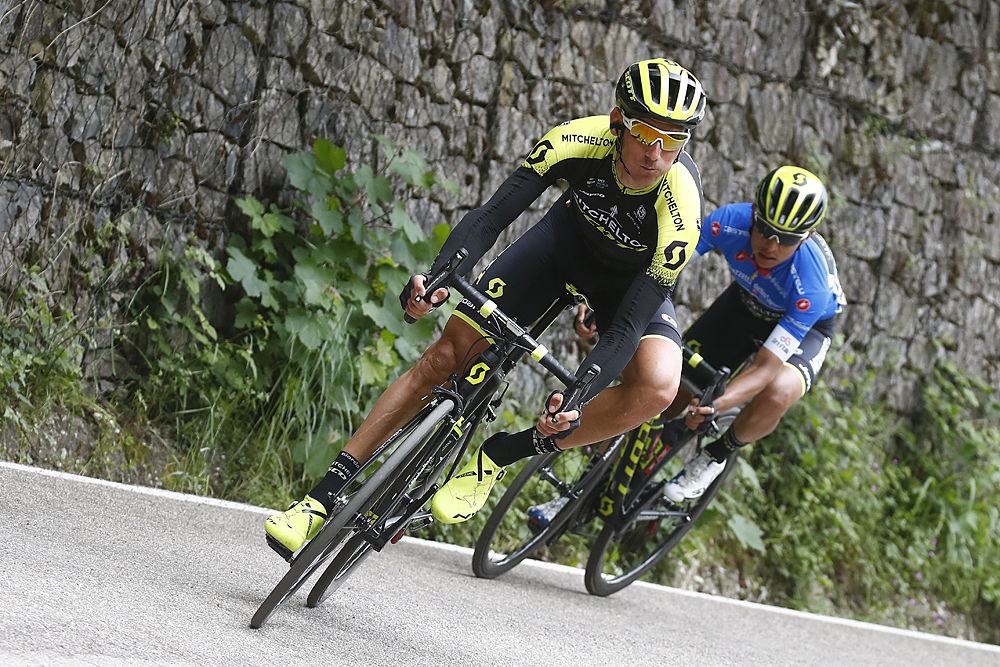
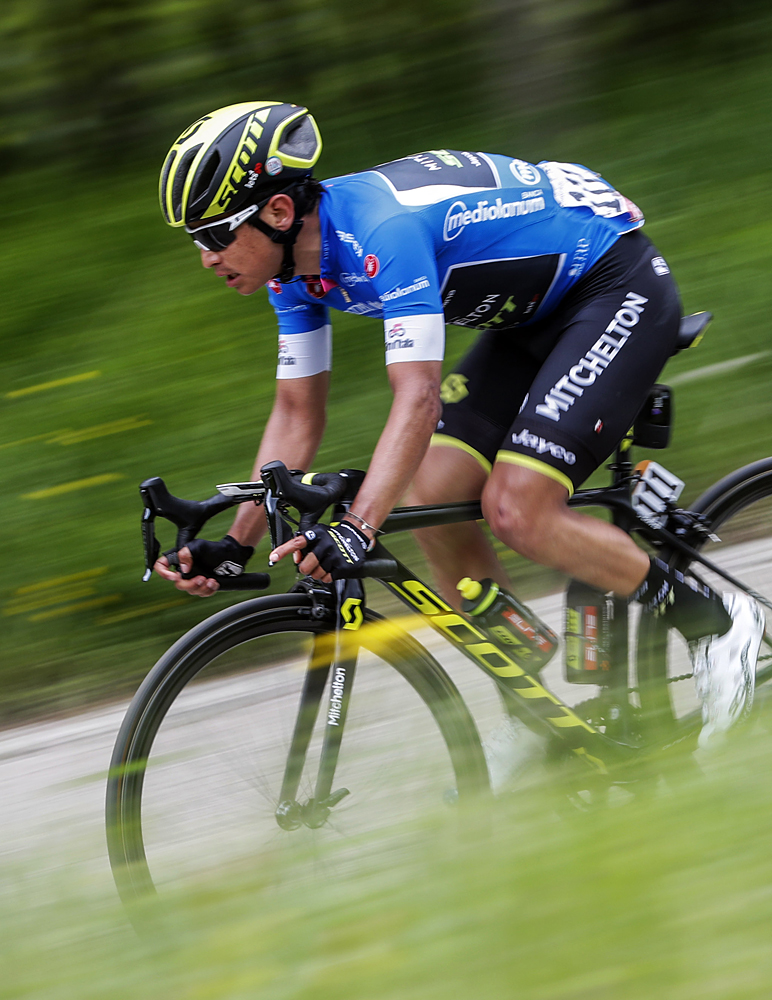
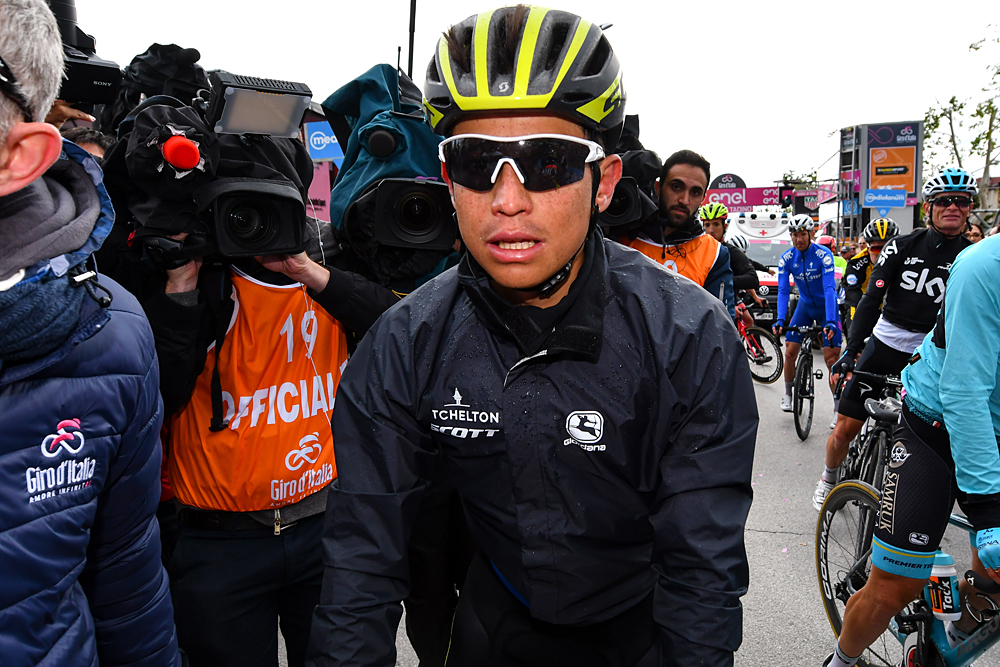
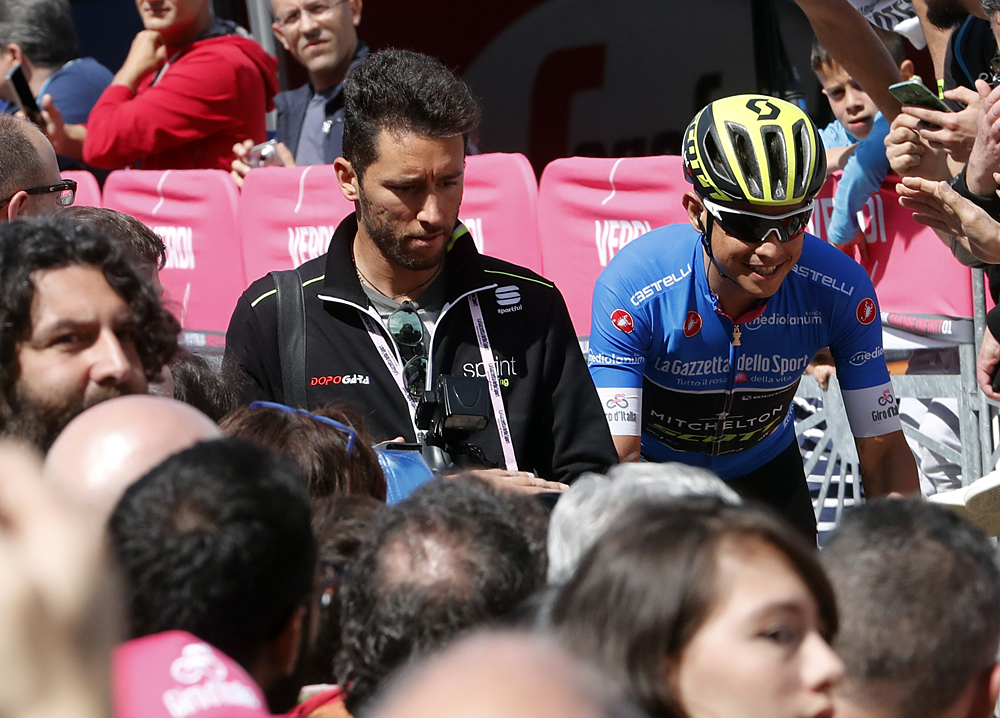
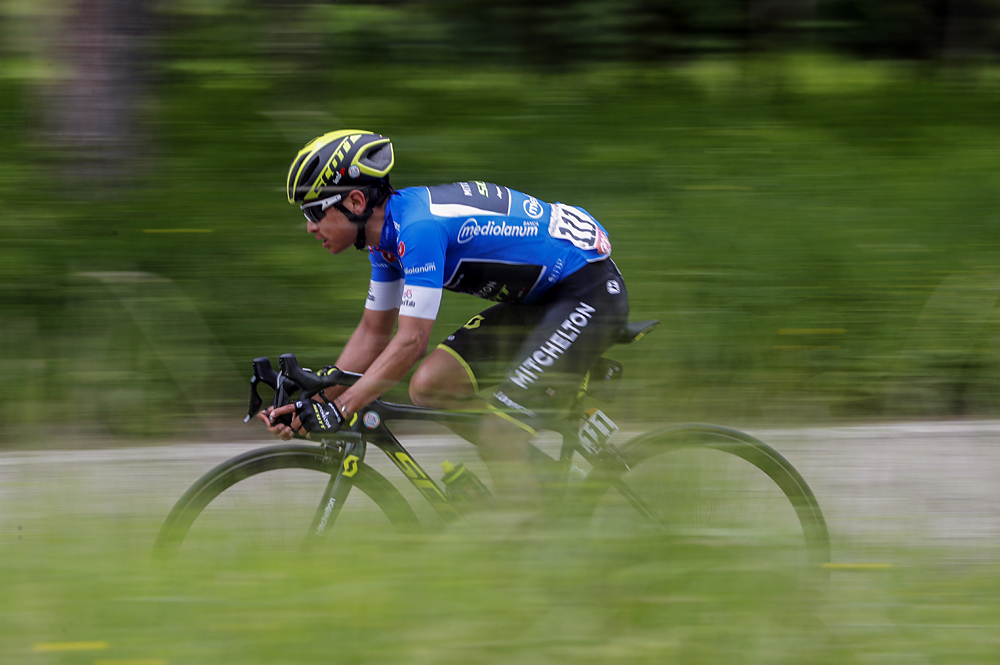
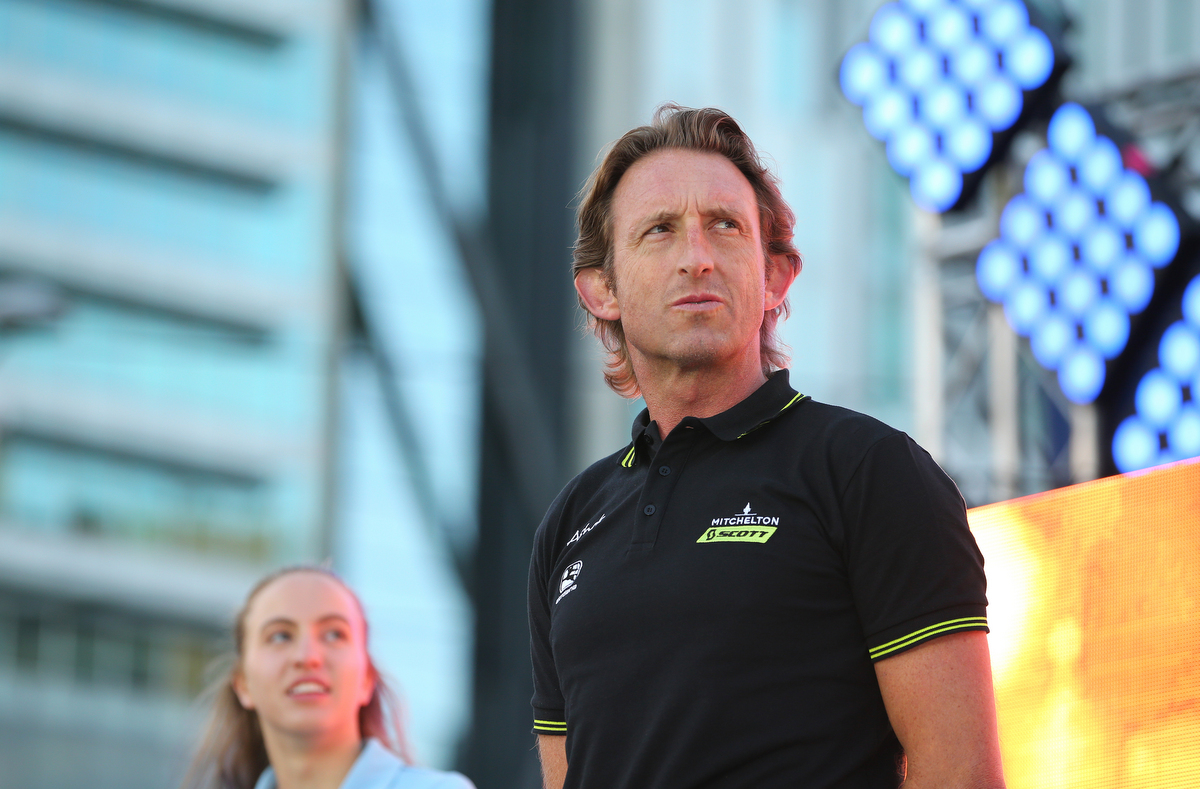
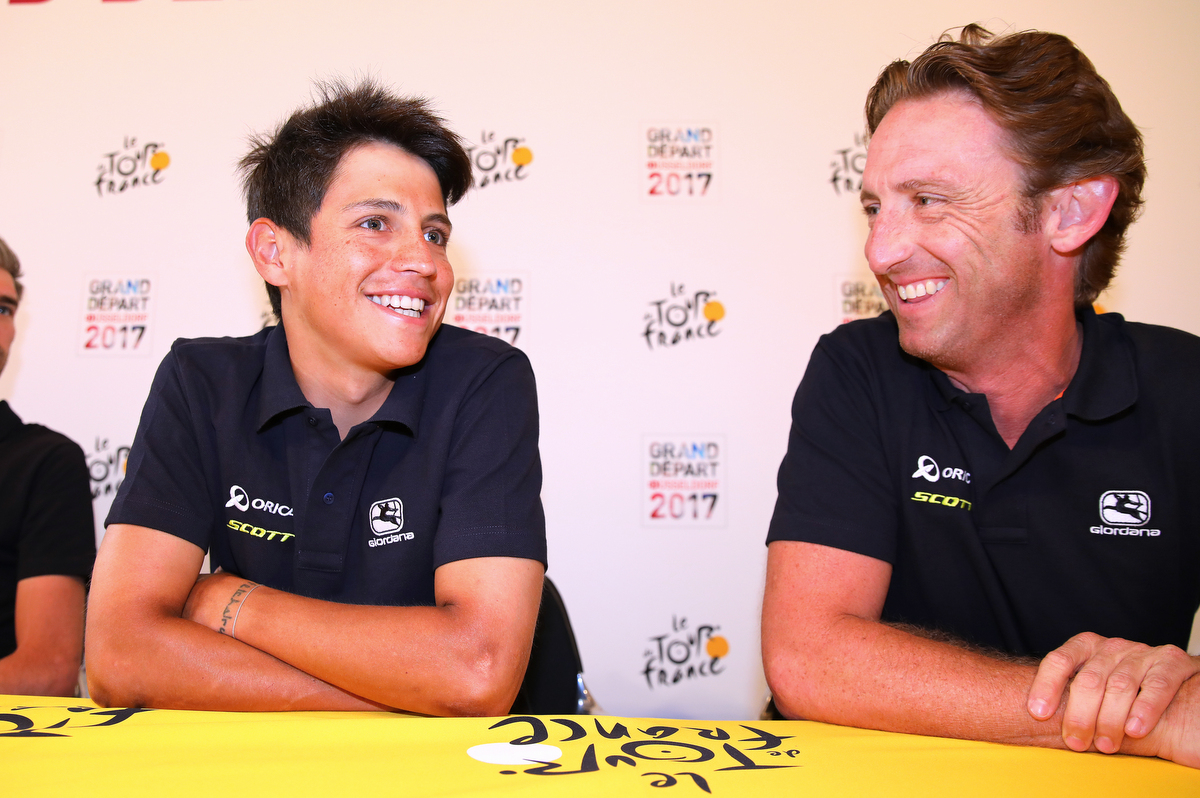
Mitchelton-Scott team manager Matt White has insisted that the team will battle on for victory at the Giro d'Italia despite the team's co-leader for the general classification, Esteban Chaves, having a disastrous stage 10, and losing over 25 minutes.
Chaves was second overall and the longstanding leader in the 2016 Giro d'Italia, and third in the Vuelta a España the same year. Chaves' victory on Mount Etna this year, and his strong performance on the Gran Sasso, had placed the Colombian in second position overall behind teammate Simon Yates.
And although Yates remains the race leader after stage 10, losing Chaves as a GC option represents a serious blow to the Australian team.
Speaking at a point before Chaves had crossed the finish line and any communication to find out what had happened with the Colombian racer was possible, White said he was at a loss as to why Chaves had lost so much time.
As White pointed out, although the situation limits their options and is somewhat of a setback, with just one leader Mitchelton-Scott are now in an identical position to most of the other teams fighting for the Giro d'Italia.
"That's bike racing, isn't it? It happens. It wasn't what we expected, it's an intermediate mountain stage, and Esteban was third on one of the hardest mountain stages just 48 hours ago. I don't know what happened, but I'm assuming it's allergies," White told a small group of journalists as he waited outside the team bus near the finish for Chaves to come across the line.
"He's going to be very disappointed, as his general classification has gone out of the window," White added.
Get The Leadout Newsletter
The latest race content, interviews, features, reviews and expert buying guides, direct to your inbox!
Pressed for more information, White continued, "I didn't know anything. I stayed with the front group and left him with three guys."
Asked by one journalist if that was a lot of riders as support for Chaves, White bristled slightly and said, "We've got eight guys in the team, so it's not that hard to work out. They stopped working with 70 kilometres to go anyway."
The other factor that contributed to leaving three riders with Chaves, White added, was that he thought that Chaves was simply having a bad moment – not, as it later emerged, a major loss of power in his legs.
"Roman Kreuziger was with him from the start, and then we told Sam Bewley to stop and wait at the top of the category 3 climb" – at kilometre 56 of the stage. "And then there was also Christian Juul-Jensen. So we wanted to bring Esteban back; we thought it was a bad moment, and if he got to the back of the group, it'd be OK. But it didn't happen like that, and, eventually, we just pulled off the chase."
There was a point, White said, when it seemed as if Chaves' group would make it back on. However, as he pointed out, the time differences between the two groups radioed through to race followers seemed to vary wildly both on the TV coverage and in the team cars.
"It was tricky to know the time gaps," White said. "It came down to one minute at one stage but other key GC teams wanted to put the boot in, and they did."
On top of that, the stage was one of the most difficult outside the main days in the mountains, making it very difficult terrain to recover time lost.
"It was non-stop racing – the longest stage of the Giro, and straight after the rest-day. With 3,500 to 4,000 metres of vertical climbing, it was a tough day."
Overall, White insisted, Mitchelton-Scott's strategy remains the same.
"Esteban's chances for GC are gone, which means I've got one very handy helper for Simon when it matters."
There is one less card to play in the Giro GC battle, but, as White said, "We're only back in the same position [with one leader] as every other team now. Nothing's changed: we're still trying to win the Giro."
Alasdair Fotheringham has been reporting on cycling since 1991. He has covered every Tour de France since 1992 bar one, as well as numerous other bike races of all shapes and sizes, ranging from the Olympic Games in 2008 to the now sadly defunct Subida a Urkiola hill climb in Spain. As well as working for Cyclingnews, he has also written for The Independent, The Guardian, ProCycling, The Express and Reuters.
